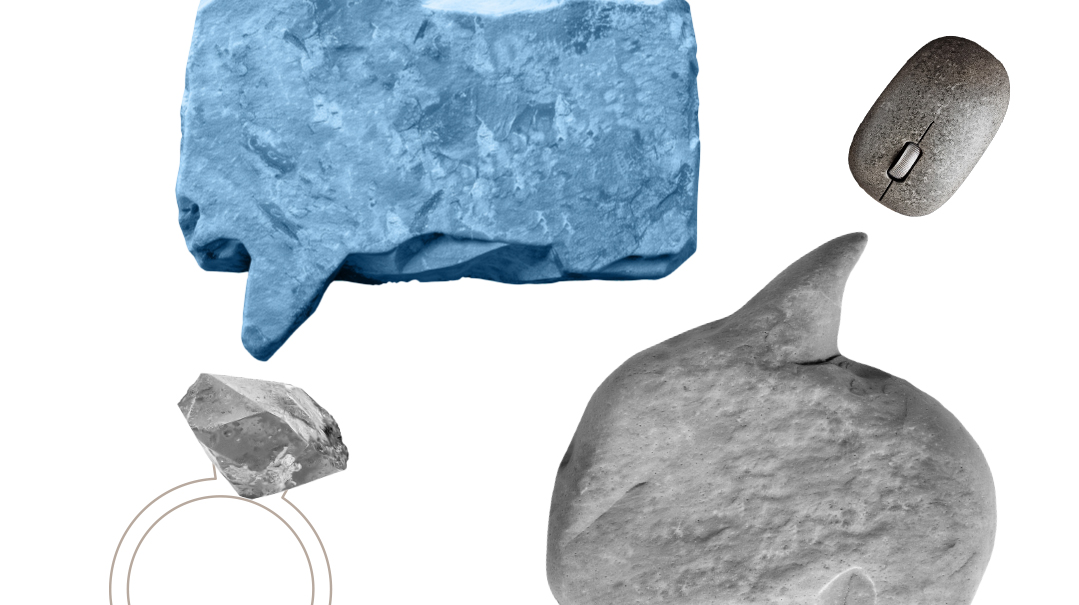On The Money
| December 28, 2021Ten women share the regrets they have about how they handled money so we can learn from their mistakes

Aliza
I thought investing was for rich people. It never occurred to me that it was something I could and should be doing; it was totally off the table. And anyway, wasn’t it so complicated? It wasn’t until I was in my mid-30s that I realized I was wrong.
I’ve always been very into personal finance, but honestly, when I was younger, it stemmed from anxiety, born from concern about money. I nagged my husband for years, telling him that we should budget, but he’s not the budgeting type. I finally wore him down (or maybe just convinced him that it was his idea), and we started budgeting a few years ago.
So there I was, reading all these personal finance books, and they all talked about investing and preparing for retirement. I read that and freaked out. Ohmigosh, retirement?! I have no money, how am I supposed to save up? Investing? How can I pick stocks? It’s so risky!
But then I started paying attention to what I was reading and hearing in podcasts, and I realized that index funds and EFTs are the safe, easier way to invest. We started slowly and worked from there.
I sometimes think about how much better off we’d be if we’d started saving and investing earlier. My parents never taught me this, because they didn’t know it themselves, but I want to keep my kids from getting deeper into this hole.
Today I actually deposited $270 of my kids’ money; they’re investing in an EFT. And the other night I sat down with my 11-year-old to talk about the stock market and compounding interest. We took out a calculator and figured it out: if he wants to have an investment goal of 10K by the time he’s 20, how much does he need to put away now? What does he need to do with it? We talked about how many years I have to save for retirement, and I showed him the difference between what I’d have if I started saving now and how much I’d have had if I’d started saving when I was young.
Lesson learned: Investment is for everyone. And compound interest is a beautiful thing.
Malka
Half a year after I got married, we were living in Israel, and I still hadn’t found a job. My father-in-law offered to hire me to work remotely in his company. I was so relieved to find employment, I immediately agreed without thinking it through.
It was a tough beginning, but I kept telling myself that all beginnings are hard. After some time, though, it became clear though that this wasn’t about beginnings; I hated the work and the hours. I was supposed to do a certain number of hours per week, but because I hated it so much, I often ended up working less. I’d then be consumed with guilt over taking advantage of my father-in-law. It made me miserable. At the same time, we needed the money, so I felt trapped.
Once our first child was born, I resigned. It was the easiest and least awkward way out.
Lesson learned: Think things through before you accept a job offer. Think again if it’s being offered by family. And utilize maternity leave to peacefully transition out of a job you aren’t happy at.
Ilana
After living in rentals for close to a decade, we were thrilled to buy a home of our own. It needed some work and personalization like most homes do. We were so eager to get everything fixed up, we did everything we wanted to do — all at once. We painted, installed new outlets, added kitchen cabinets…
It was a big mistake, and for more reasons than one. Because we did everything at once instead of one thing at a time, which would have been affordable, we ended up house poor and in serious debt. Now that we’ve lived in our house for longer and our family has grown, we realize that had we waited longer, we would have had the experience living in the home to make changes that were more practical and would serve the family better.
Yes, we had our house, but we struggled to afford everything else. We finally climbed our way out of those debts a few years later, but knowing what I know now, I would have done things very differently back then.
Lesson learned: When building, renovating or designing a home, take everything one step at a time. Don’t rush it.
Tziporah
When I got married, I knew that the financial burden would be on my shoulders; neither my parents nor my chassan’s parents were providing any financial support, and our plan was that my husband would be in kollel for a minimum of two years. I didn’t think much about what that would mean. I signed up to be the breadwinner and knew we’d live frugally, but I never considered the emotional impact it would have.
Needless to say, shanah rishonah with a husband in kollel and zero support brings challenges. That first year also brought our first baby. I was working hard and, on top of that, always trying to figure out how to balance our accounts. I was stressed and resentful.
After two years, my husband got a side gig tutoring, and he took responsibility for deciding what to do with that income. That’s when I realized the mistake I’d been making: I was taking sole financial responsibility for our family, but being the only breadwinner didn’t necessarily mean I had to be the CFO. I felt very grateful that we were able to stay in learning, and I didn’t regret working or not having two incomes, but it was unhealthy that our finances were my domain only.
My husband would help me with laundry, but he wouldn’t be stressed about it because it wasn’t his job. That was the mindset I needed to have when it came to money.
We slowly shifted our approach. I started to tell my husband I needed him “to figure out” things like how we could afford plane tickets to visit our parents for Pesach or how we’d pay our taxes. He rose to the occasion and took over.
My husband is still in kollel and I still work full-time. We still live on a tight budget. The difference is that now I have more simchah and less stress. I go to work, and yes, I’m the breadwinner, but my husband is the one who makes sure we can afford everything we need throughout the year.
Lesson learned: You can support a husband in kollel and have him take financial responsibility for your family. It isn’t a contradiction.
Faiga
Our family is one of those families who financially fit smack dab in the middle — we’re not wealthy, but we aren’t poor. We do well enough that we don’t qualify for tuition discounts, but we struggle to pay all of it. While I was happy that we could in fact make it, I look back and realize I had a sense of entitlement when it came to paying full tuition.
When I’d call the school’s office and ask to speak with a principal or teacher, I always had the fact that we paid full tuition in the back of my mind, as if they owed me returning my call promptly more than they owed it to other parents. I also never gave teacher appreciation gifts. “My gift is paying full tuition. I don’t have to do more than that.”
Then my husband was asked to help the hanhalah of one of our children’s schools with fundraising. Once he was privy to the school’s finances, he realized that no, they weren’t pocketing money, no one was becoming wealthy from running a mossad, and we weren’t “paying for someone else’s child.”
Even more important was the realization that the schools couldn’t pay the teachers more. After that, I started buying the teacher appreciation gifts for Rosh Hashanah and Purim, and I saw how much it meant to them. While I feel that all of my children got the same education, teachers are human, and with my younger children (who had a mother who bought teacher appreciation gifts) the lines of communication between us and the teachers were warmer and friendlier, and my children benefited from that.
Lesson learned: Show your children’s teachers that they’re valued. It’s the right thing to do, and your children will benefit.
Tehillah
I grew up in an affluent family and we lived comfortably. I knew that when I got married my life wouldn’t be as comfortable, but my standards were a bit unrealistic. The first year we were married we rented a gorgeous apartment in an upscale neighborhood. Because I grew up in a beautiful and spacious home, I naturally assumed that that was what both I and my husband needed.
We had three big bedrooms and a beautiful porch. I invested time, money, and energy into making it stunning.
After a year, we downgraded to a nice, but not as elegant, two-bedroom apartment in a less expensive neighborhood. And guess what? We were just as happy, if not more. With the money we were saving on rent, we were able to enjoy more nights out and trips. We felt more financially secure. I had been far too focused on giving us a luxury shanah rishonah experience, and to this day, I regret the money we wasted.
Lesson learned: It’s better to start small. You might need less than you think.
Dini
When I became a graphic designer, I was so eager to make a name for myself, I took on every client I could, gave the lowest possible price, and did whatever I could to make the client happy — even at the expense of my time and health.
Once I built up my business, I didn’t take a client if I didn’t have time, but I was still struggling to balance my responsibilities at home with my career. I was burning myself out fast.
I started to see my time as more valuable than my going project rate or hourly rate. I made a bold move and began charging almost double what I’d been charging previously. I knew I would upset some of my clients and that I’d lose a lot of them — and initially, I did. I gave my long-term clients a discounted rate, but for everyone else I stood firm with my new prices.
Interestingly enough, I started to attract bigger clients. Once they saw my price, they assumed I was worth it. Pretty soon, I was working fewer hours, but earning even more than I had before.
Lesson learned: Charge More. Work less.
Ruchy
I’ve always been the frugal type. I was terrified of ending up in debt like I knew so many young couples do. But I also wanted to have fun and enjoy shanah rishonah. I therefore decided to spend less money on furniture and more on experiences.
I bought the cheapest of everything — couch, beds, refrigerator, oven, sheitels. If it was cheap, I’d buy it. With the money I saved, we did go on plenty of trips and ate out at fancy restaurants.
But after five years of marriage, I’d already had to buy a new oven and a new couch, had our beds fixed twice, fixed the refrigerator once. Neither of my linen sets lasted more than two years.
After two years of marriage, we didn’t have money for extras because we were always replacing or fixing something major. Finally, when it came time to replace things the third time around, I decided we were going to invest in quality items. Did it cost more money? Yes. But ten years later, all of the quality items have lasted, and because we aren’t spending our money replacing things, we do have money to spend on extras.
Lesson learned: Sometimes it’s expensive to be cheap.
Penina
We were in our mid-fifties when we inherited a nice sum of money after my mother-in-law’s petirah. The amount was close to two years’ salary. For years we’d dreamed of moving from our very out-of-town city to the tristate area, but it had always seemed financially impossible.
We’d tried to make the move before, but were always stuck between the need to be on site to job hunt and to be back home in our current jobs bringing in an income. Employers were reluctant to consider my husband and me for jobs if it meant we first had to tie up loose ends in our hometown. But we couldn’t move first and then job hunt because we couldn’t swing the higher rent and cost of living if we didn’t have a steady income from the get-go. And what if it took a while to find employment?
With this yerushah, the move was now possible. Relying on our large financial cushion, we were very relaxed about the move. Perhaps too relaxed. We took our time settling our kids into schools and ourselves into our new community, and put job hunting on the back burner. My husband joined a morning and night kollel, and was home in the afternoons and evenings to help me with the supper-homework-bath routine.
We acted like we were on vacation, regularly enjoying the numerous kosher restaurants New York had to offer; back where we came from, there was only a pizza store. We indulged our daughters in fashionable new clothing from frum stores — what a pleasure it was not to have to search a department store high and low for something tzniyus! It was a blissful time.
It was almost a year after our move before we took job hunting seriously. And another half a year before we found excellent employment. Meanwhile, we’d used up almost all of the yerushah. We weren’t in debt, but things were tight. Once we started working again, we regretted that we’d spent the money freely instead of carefully budgeting it, speaking to a financial planner and investing it so it could grow, and looking for jobs sooner so that we didn’t use it for day-to-day living for so long. That money could have provided a cushion for a far longer amount of time had we used it wisely.
Lesson learned: If you receive a significant sum of money, create a clear plan of what you want to do with it and how you can make it grow so that you don’t end up squandering it.
Daniella
My husband and I never really had ideals or a system when it came to spending money. Sometimes we were more easy going about money and sometimes less so. We tried to be responsible, and for the most part we were, but every time we did spend a significant amount of money, I always suffered intense feelings of regret and doubt. Still, it was working.
One of my children needed extra help with reading, and we tried a bunch of tutors, but nothing was panning out. Finally, we found someone who really clicked with my child and his reading improved dramatically. Of course, this tutor’s rates were sky-high.
I was eating myself up with doubt about whether we were being careless or not, so we went to speak with our rav. He told us one line that has forever since changed our perspective on spending money: “If you need it, consider yourselves rich. But if you want it, consider yourselves poor.” Following this motto, we’re frugal with wants, and thus we always have money (or close enough to it) to cover our needs, and I feel confident about our spending habits.
Lesson learned: Hashem always gives you what you need, but it’s up to you to decide how you spend the money. If you need it, consider yourselves rich. But if you want it, consider yourselves poor.
(Originally featured in Family First, Issue 774)
Oops! We could not locate your form.






